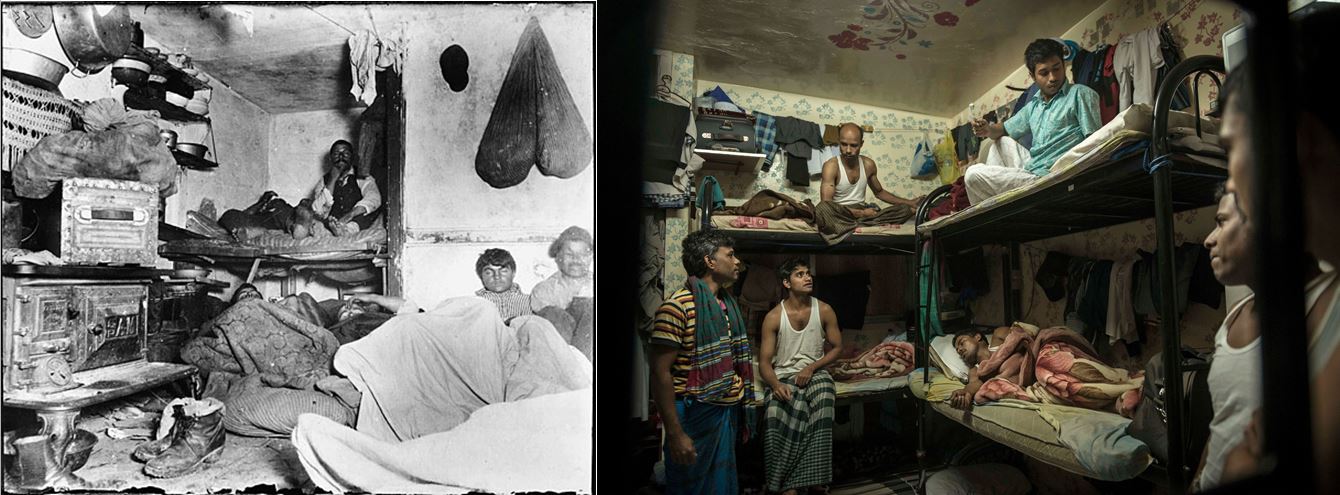Then and Now: Migrant Labor Edition
 On the left is one of photographer and muckraker Jacob Riis' most famous photos, "Five Cents a Spot," taken with newly-developed flash photography technology in 1888. At the end of the 1800s and beginning of the 1900s, immigration to the US spiked, and millions of laborers from Russia, Germany, Italy, and Ireland arrived to take jobs in New York City's expanding manufacturing sector.
On the left is one of photographer and muckraker Jacob Riis' most famous photos, "Five Cents a Spot," taken with newly-developed flash photography technology in 1888. At the end of the 1800s and beginning of the 1900s, immigration to the US spiked, and millions of laborers from Russia, Germany, Italy, and Ireland arrived to take jobs in New York City's expanding manufacturing sector.
On the right is a photo from yesterday’s New York Times, showing migrant workers who built New York University’s Abu Dhabi campus. According to the Times, many of the workers, who come from Bangladesh, India, Pakistan, Sri Lanka and Nepal, must surrender their passports, and a year’s wages as a “recruitment fee,” to the contractors who employ them. The laborers work 6-7 days a week, 11-12 hours a day, for about $3,000 a year. Instead of the right to protest their working conditions and negotiate higher wages, they face harassment, beatings and deportation from Abu Dhabi’s police force. Regarding NYU's involvement, the Times reported:
Facing criticism for venturing into a country where dissent is not tolerated and labor can resemble indentured servitude, N.Y.U. in 2009 issued a “statement of labor values” that it said would guarantee fair treatment of workers. But interviews by The New York Times with dozens of workers who built N.Y.U.’s recently completed campus found that conditions on the project were often starkly different from the ideal. … Told of the laborers’ complaints, officials said they could not vouch for the treatment of individual construction workers, since they are not employees of the university but rather of companies that work as contractors or subcontractors for the government agency overseeing the project. Those companies are contractually obligated to follow the statement of labor values.
When Riis’ book How the Other Half Lives came out in 1890, its frank depictions of poverty in the midst of New York City shocked middle class Americans. Riis—an immigrant himself—believed that exposing the harsh working and living conditions of the newest and poorest New Yorkers would help push along the Progressive movement for safer workplaces and workers' rights. Luckily for many subsequent generations of New Yorkers, he was right.
--
Collage Photo Credits: Left: Jacob A. Riis Collection, Museum of the City of New York; Right: Credit Sergey Ponomarev for The New York Times.













